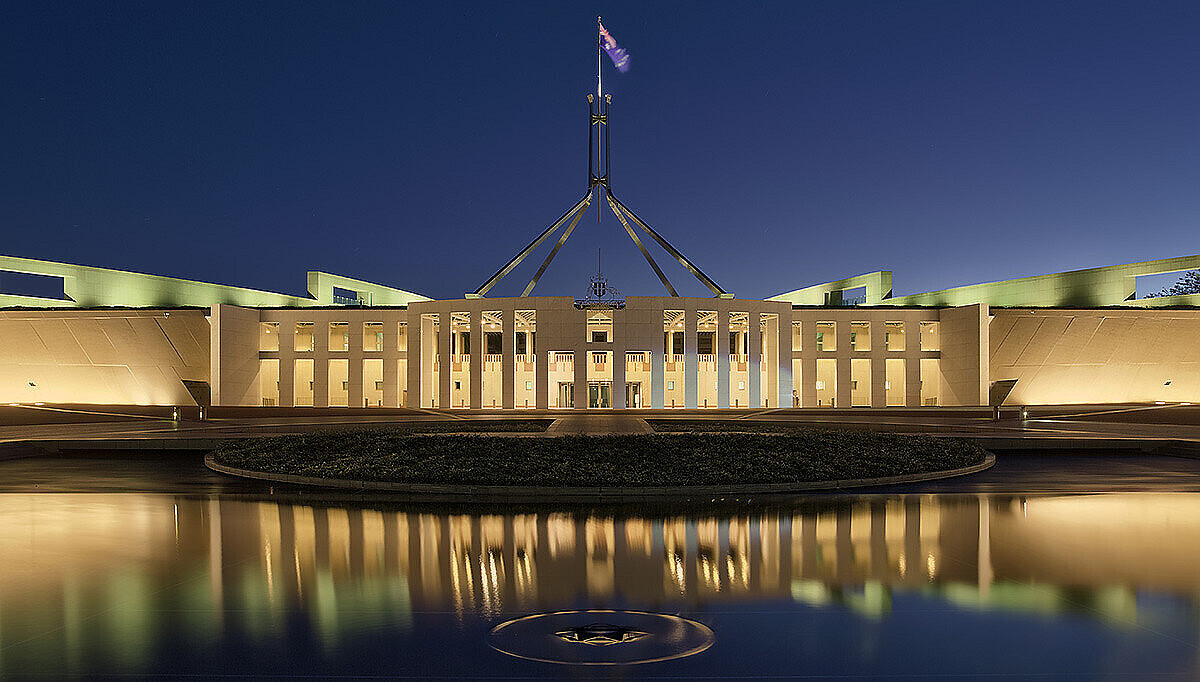New South Wales was never envisaged to be, and never was, as Robert Hughes (The Fatal Shore, 1986) claims, a dictatorship or a gulag. It was to be a colony, admittedly a penal colony, but one nonetheless subject to the law. This meant that from the very beginning, we were subject not to the rule of men but to the rule of law. Now by the rule of men, we mean a system of governance in which the government enjoys near absolute discretion in governing, as in the Soviet Union or Nazi Germany. From 1788, no Australian governor or government has ever enjoyed anything even close to such powers.
What, then, is the rule of law? Sir Guy Green (Governors, Democracy and the Rule of Law – Robert Menzies Oration, 1999), former Chief Justice and then Governor of Tasmania, concludes that it has two core elements. First, everyone, particularly the executive arm of government, is subject to the law. Secondly, while citizens may do anything which is not prohibited by law and which does not infringe on the rights of others, the executive government may only do what is authorised by law. This, in fact, accurately describes every system of government known to Australia since 1788.
How did the rule of law come to Australia in 1788? At that time, and for many years after, the Aboriginal tribes on the mainland were essentially nomadic. The people on the islands in Torres Strait were apparently settled separately, and those were encouraged by the British, but they could never have constituted the sort of treaties seen in, say, India, or the Persian Gulf, where the local authority placed itself under the protection of the British. To the Europeans, Australia had nothing, even vaguely resembling a government. There was no authority to deal with. Australia was, therefore, legally terra nullius.
Under international law, terra nullius falls into two categories. First, land with no people whatsoever. Secondly, an inhabited land with nothing recognisable to Europeans as a government. The British founded governments in the Middle East, in North Africa, India, Malaysia, China and Japan. But as they assessed the facts, there was no recognisable governing authority in Australia. So Australia was not acquired by treaty, nor was it conquered. It was settled as terra nullius.
Some think the High Court in the Mabo [Mabo v Queensland (No 2) (“Mabo case”) [1992] HCA 23; (1992) 175 CLR 1 (3 June 1992) High Court of Australia] case changed all that. The Court did not because the Court could not. After all, its authority comes ultimately from the British acquisition in 1788! All the High Court ruled in Mabo was that native land title survived the British ac¬quisition. They did this not only with respect to the case before them concerning the settled agriculturists in Torres Strait but also with respect to the mainland, then inhabited by nomadic tribes. On this, they had heard no evidence and had listened to no argument. That is, the Court determined the actual case before them, but then legislated for the mainland, where circumstances had been entirely different.
Clearly, the customs of a nomadic people, highly appropriate for their way of life, could not form the basis on which the settled colony would be governed. This had to be the common law of England. Could it have been another legal system? Only if the colonial power had been, say, France or the Netherlands. After American independence, some toyed with the idea of substituting European codified Roman law for the common law. This was soon abandoned as unworkable and unsuitable.
The extraordinary freedoms that the American colonists enjoyed, even before the War of Independence, and which inspired them to claim their full freedom as they saw it, sprang from the common law. The French codified version of the Roman law owes much to Napoleon Bonaparte himself. But this fact demonstrates the very weakness of the Code Napoleon. This was a private law system developed and imposed by a dictator. Unlike the common law, the executive government in Napoleon Bonaparte’s empire was not under the general law. Sir Guy Green refers approvingly to Professor Geoffrey Walker’s (1989) observation in his monumental work on the rule of law about this very point. The rule of law “is the unifying concept of our whole system of judicial review and government under the law. Without some theoretical foundation of this nature, our constitutional doctrine would lack an organising principle and basis for action.” That unifying concept was absent from the Code Napoleon.
In a way unknown in most other European countries, the common law in 1788 contained both an advanced private law system with an advanced constitutional and public law system. So we received the common law, then clearly the most advanced system of law, as it still is today. (But the common law always suffered from one particular disadvantage in any such reception. Its vast corpus is found in case law, which seems difficult to manage. It was so much easier for countries searching for a modern legal system to adopt a civil law code in one book, which is easy to import, to teach, and to memorise.
Thus, those countries that were not formally colonised (for example, Japan, Thailand, and China) would voluntarily incorporate the Roman Law codes, often the later German version, the BGB. So, almost without exception, only British colonies, conquered or settled, took the common law.




